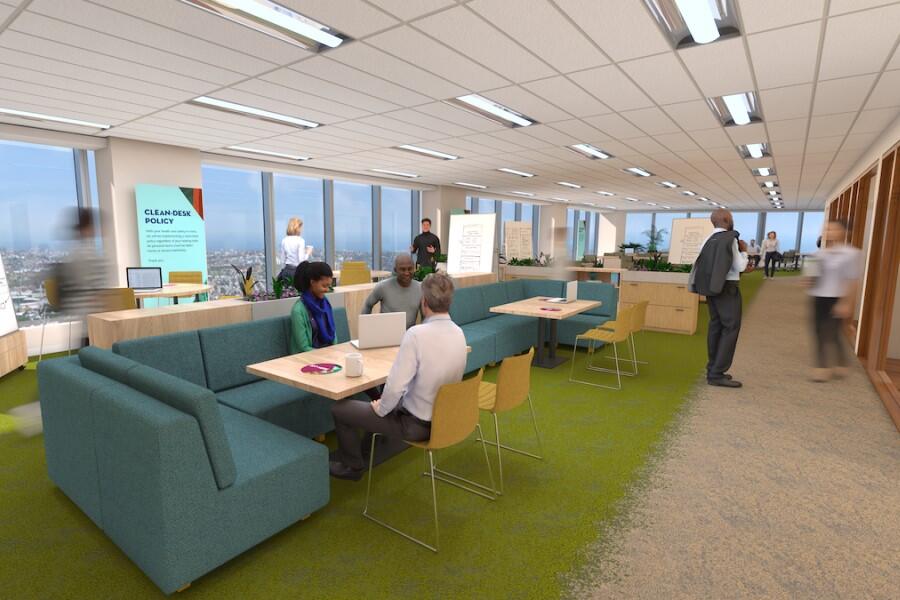A huge tech company just killed the 9-5 workday for good

Salesforce said it ‘no longer makes sense’ to expect employees to work in the office eight hours a day and still do their best work.
” data-credit=”Image: Salesforce” rel=”noopener noreferrer nofollow”>
Salesforce will also transform its office spaces into hubs for meetings and collaborative work.
Image: Salesforce
Salesforce has become the latest company to kill off the traditional nine-to-five office routine, after announcing that its employees will be free to work remotely from now on.
In a blog post published on February 9, Brent Hyder, chief people officer of the cloud CRM giant, said it “no longer makes sense to expect employees to work an eight-hour shift and do their jobs successfully,” and that employees would be given more flexibility in how, when and where they worked going forward.
SEE: COVID-19 workplace policy (TechRepublic Premium)
The majority of Salesforce employees will work on a flexible basis, Hyder explained, whereas employers who don’t work near an office, or otherwise work in roles that don’t require being in an office, will be able to work remotely 100% of the time.
Similarly, a small portion of the workforce that needs to be in an office to perform their role will remain office-based four to five days a week.
“The 9-to-5 workday is dead, and the employee experience is about more than ping-pong tables and snacks,” said Hyder.
“Our employees are the architects of this strategy, and flexibility will be key going forward. It’s our responsibility as employers to empower our people to get the job done during the schedule that works best for them and their teams, and provide flexible options to help make them even more productive.”
Salesforce joins a growing list of companies to make remote working a permanent organizational fixture, with Microsoft, Twitter and Facebook among the most notable tech firms to have brought in big changes to how employees work as a result of COVID-19.
Businesses are increasingly realizing that not all employees have to be in an office in order to do their best work, as well as the cultural and wellbeing benefits that remote-working options bring.
“This work-from-anywhere model will unlock new growth opportunities that will help us drive greater equality. Our talent strategy is no longer bound by barriers like location, so we can broaden our search beyond traditional city centers and welcome untapped talent from new communities and geographies,” said Hyder.
“And creating more flexible schedules removes hurdles that may make it more difficult to be in the office daily — from picking up kids to caring for sick family members.”
Hyder also revealed that Salesforce will transform its office spaces into “community hubs” that accommodate hybrid styles of working, with an emphasis on creating spaces for meetings and collaboration.
SEE: Remote working is broken. These six changes can help fix it (TechRepublic)
According to Hyder, 80% of Salesforce employees feel a desire to reconnect with their colleagues in-person to some degree.
“Gone are the days of a sea of desks — we’ll create more collaboration and breakout spaces to foster the human connection that can’t be replicated remotely,” he said, adding that health and safety would be a top priority as offices did reopen for those who needed them.
This will include “home wellness attestations” and temperature screenings before entry to Salesforce offices, as well as face coverings, regular deep-cleaning and contact-tracing.
“This isn’t just the future of work, this is the next evolution of our culture,” said Hyder.
“As employers, we have an opportunity to create an even better workplace — one that allows us to be more connected to each other, find more balance between work and home, and advance equality — ultimately leading to increased innovation and better business outcomes.”


